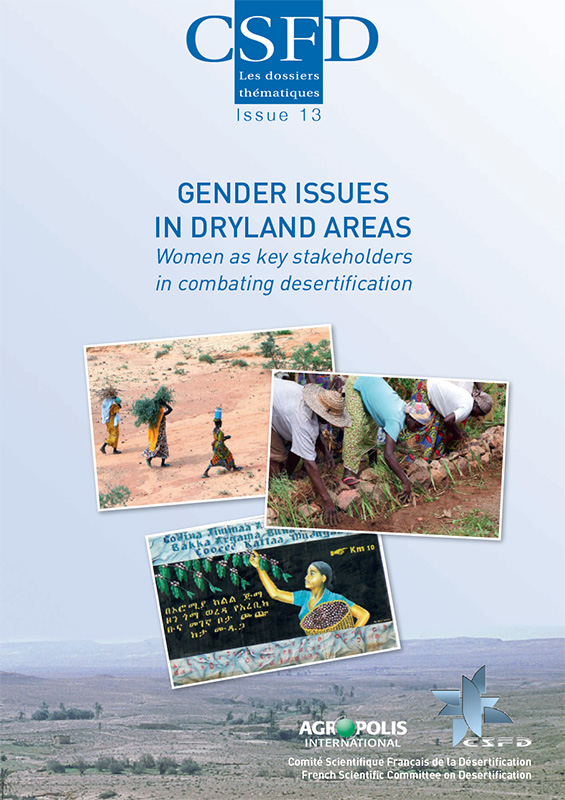Women as key stakeholders in combating desertification
The land desertification process is generally the result of human activities carried out at different scales and exacerbated by global environmental change. Yet the livelihoods of people in rural communities are highly dependent on the quality and diversity of ecosystem resources.
These societies are characterized by a high level of sexual division of labour, activities and responsibilities and hence desertification does not affect men and women in the same spheres.
Women—in addition to their farming activities, particularly growing subsistence crops—shoulder most tasks encompassed by the social reproduction concept (e.g. domestic activities, child- and elder-care). This unpaid yet essential work is time consuming and restricts women’s mobility.
In dryland countries with low human development rates, women’s heavy and arduous workloads increase when resources such as water, fuelwood or products gathered for food, medicinal purposes or handicrafts are in short supply.
Women’s resource access rights are also more precarious, and their work is under-rated and -valued.
Moreover, women are under-represented in decisionmaking and leadership structures, while being constrained by social norms that often relegate them to inferior roles, and their rights are further eroded when resource competition intensifies.
But women are also active in defending their rights and combatting desertification, i.e. many are involved in counteracting land degradation or even in its restoration via associations, farmers’ organizations and individual initiatives. Operators and policymakers must now take these women stakeholders into better account, as they are too often overlooked in policies to combat desertification.
A thematic sheet summarizes this dossier. It is downloadable in French et English on CSFD website.
A paper copy is available on request at: secretariat-csfd@agropolis.fr






